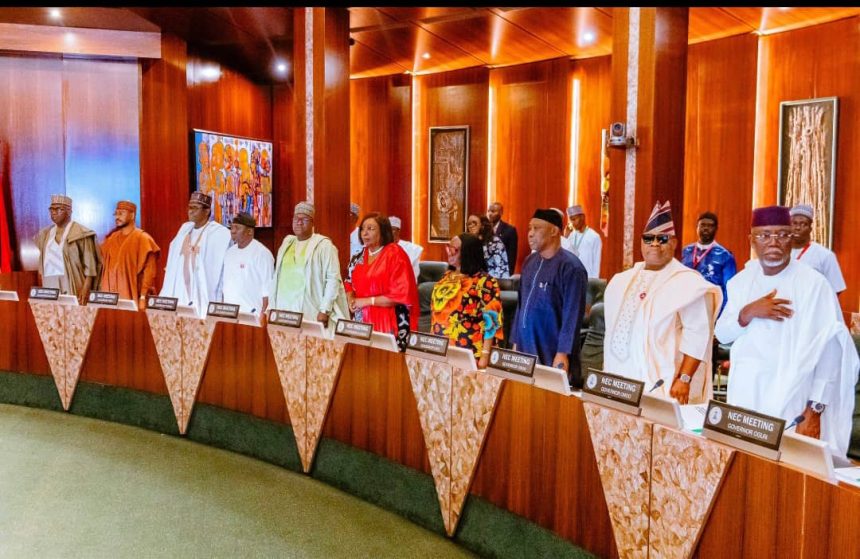NEC Urges States to Embrace NASENI’s Technological Innovations for Industrial Growth
By Patience Ikpeme
The National Economic Council (NEC) has called on state governments to adopt and leverage the innovative technologies developed by the National Agency for Science and Engineering Infrastructure (NASENI) as a catalyst for industrialization and economic transformation.
This directive emerged during the 146th NEC meeting, chaired by Vice President Kashim Shettima at the Presidential Villa, Abuja.
The meeting featured a detailed presentation by NASENI’s Executive Vice Chairman, Mr. Khalil Suleiman Halilu, who unveiled a comprehensive roadmap for Nigeria’s industrial transformation.
The presentation, titled “NASENI Economic Transformation Through Advancement in Technology Transfer and Adaptation”, emphasized the Agency’s focus on key sectors such as renewable energy, health, biotechnology, agriculture, sustainable transportation, digital technology, construction, and defense. Halilu highlighted NASENI’s commitment to creating solutions tailored to Nigeria’s economic and developmental challenges.
Halilu’s presentation underscored the agency’s innovative strides, including the development of electric vehicles, NASENI Solar Home Systems to enhance rural electrification, and smart devices such as laptops and tablets designed for the Nigerian market. He also spotlighted agricultural innovations like solar irrigation pumps and coal-based fertilizers aimed at boosting productivity in the sector. Furthermore, he revealed that NASENI is advancing projects such as a vaccine production factory under the NASENI Troment initiative, a compressed natural gas center named NASENI Portland, and a renewable energy hub branded as NASENI Renewable Park.
Halilu stressed the importance of state government collaboration in realizing the agency’s vision for Nigeria’s industrialization. He appealed for NEC’s support in facilitating the establishment of manufacturing industries across the country, easing access to raw materials, and streamlining land and seaport processes. He also sought assistance in promoting NASENI products through dedicated showrooms and favorable policies to boost local and international adoption.
During the meeting, Halilu expressed NASENI’s ambition to transform Nigeria into a global innovation powerhouse through technology transfer and product commercialization. He disclosed that the agency had attracted $3.23 billion in investments and launched the DELT-Her initiative, which is dedicated to empowering female engineers. He further emphasized NASENI’s leadership in renewable energy projects, reinforcing the agency’s pivotal role in shaping Nigeria’s industrial landscape.
The NEC, impressed by the scope and impact of NASENI’s initiatives, commended the agency for its contributions to local manufacturing and technological advancement. The Council directed NASENI to scale up its activities, including the establishment of lithium battery factories in resource-rich areas and the nationwide repair of tractors under the National Asset Restoration Programme.
In addition, the Council resolved to harness NASENI’s tailored technological solutions for manufacturing and public sector partnerships. It emphasized the importance of infrastructure development, supportive policy frameworks, and expanded market access as critical components for diversifying Nigeria’s economy.
As NEC concluded its deliberations, it reaffirmed the federal government’s commitment to supporting NASENI’s vision of driving industrial innovation and sustainable development. With its strategic partnerships and groundbreaking initiatives, NASENI remains poised to unlock Nigeria’s full potential as a leader in industrial and technological innovation.




